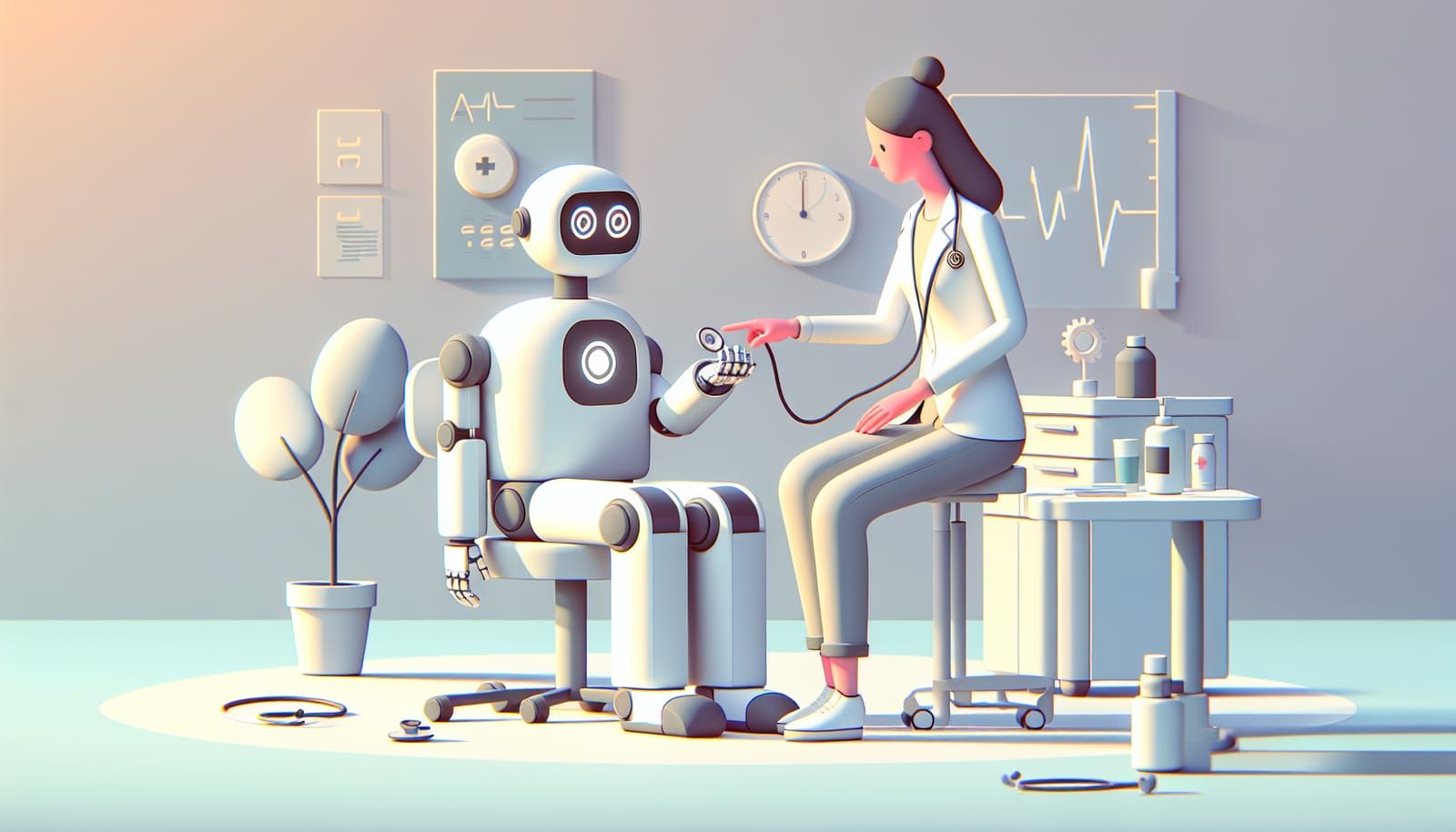Artificial Intelligence (AI) is one of the most exciting and rapidly evolving technologies of our time. From virtual assistants like Siri and Alexa to advanced algorithms that can diagnose diseases, AI is becoming an integral part of our lives. As AI systems become more sophisticated, a crucial question arises: Can AI learn ethics from human history? This article will explore the fascinating intersection of AI, ethics, and human history, making it accessible for everyone, including children!
Understanding AI and Ethics
Before we dive into the interplay between AI and ethics, let's clarify what we mean by these terms. AI refers to machines programmed to perform tasks that typically require human intelligence, such as understanding language, recognizing patterns, or making decisions. Ethics, on the other hand, is the branch of philosophy that deals with what is morally right and wrong.
When we talk about AI learning ethics, we mean that AI systems could be designed to make decisions that align with human values and moral principles. This is essential because AI has the potential to impact our lives in significant ways—whether in healthcare, transportation, or even social interactions.
A Brief History of Human Ethics
To understand how AI might learn ethics, we need to look back at human history. Our ethical frameworks have evolved over thousands of years, influenced by culture, religion, and philosophy. For instance, ancient philosophers like Aristotle believed in the concept of virtue ethics, which emphasizes moral character. In contrast, utilitarianism, proposed by philosophers like Jeremy Bentham, focuses on the greatest good for the greatest number.
Throughout history, societies have grappled with ethical dilemmas, from the morality of war to the rights of individuals. These discussions have shaped laws, social norms, and our understanding of justice. By studying these ethical frameworks, AI could potentially learn to navigate complex moral decisions.
Can AI Understand Human Emotions?
One of the challenges in programming ethics into AI is understanding human emotions. Emotions play a crucial role in moral decision-making. For example, empathy can lead us to act kindly toward others, while anger may push us toward revenge. AI systems, however, do not experience emotions in the same way humans do.
Researchers are exploring ways for AI to identify and understand human emotions through data analysis. By examining facial expressions, tone of voice, and even social media interactions, AI could gain insights into how people feel. This understanding might help AI systems make more ethical choices that resonate with human values.
Learning from History: The Role of Data
AI learns primarily through data. The more data it has, the better it can understand patterns and make predictions. When it comes to ethics, historical data can be invaluable. By analyzing past decisions and their consequences, AI can identify patterns associated with ethical behavior.
For example, consider a historical case where a community faced a dilemma about resource allocation during a crisis. If AI can study the outcomes of various decisions made in that scenario—such as who benefited and who suffered—it can learn to prioritize fairness and equity in similar situations in the future.
Ethical Dilemmas in AI
Despite the potential for AI to learn ethics, there are significant challenges to consider. One major concern is bias in AI systems. If the data used to train an AI contains biases, the AI will likely perpetuate those biases in its decision-making. For instance, if an AI system is trained on historical hiring data that favored one demographic over others, it may continue to discriminate against qualified candidates from different backgrounds.
Moreover, ethical dilemmas arise when AI systems must make decisions that impact human lives. For example, self-driving cars may need to make split-second decisions in accident scenarios. How should these vehicles prioritize the safety of passengers versus pedestrians? This question raises critical ethical concerns that AI must navigate.
The Future of AI Ethics
As we look to the future, the integration of ethics into AI is becoming increasingly important. Organizations, governments, and researchers are working on frameworks to ensure that AI systems align with human values. Initiatives like the Partnership on AI are dedicated to addressing ethical issues in AI development.
Moreover, educating the next generation about AI ethics is crucial. Schools are beginning to incorporate discussions about technology and ethics into their curriculums, preparing young minds for the challenges ahead. By fostering a culture of ethical awareness, we can ensure that future AI developments prioritize the well-being of all.
Conclusion: A Collaborative Journey
In conclusion, the question of whether AI can learn ethics from human history is complex but fascinating. While AI has the potential to analyze and learn from our ethical past, it is essential that we guide its development with care and responsibility. By understanding our history and the moral lessons it imparts, we can help shape AI systems that reflect our values and aspirations.
As we move forward, collaboration between technologists, ethicists, and society at large will be vital. Together, we can harness the power of AI to create a better future—one where technology serves humanity ethically and responsibly. The journey is just beginning, and with a thoughtful approach, AI can indeed become a partner in our quest for a more just and equitable world.


